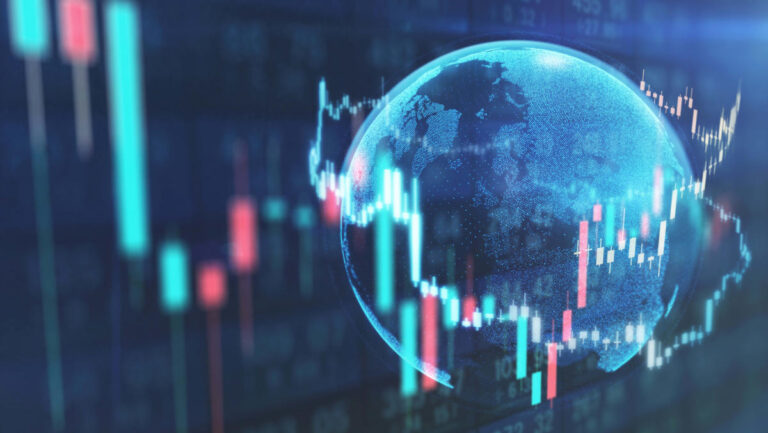Citi Chief Global Economist Nathan Sheets joins Yahoo Finance Live to discuss continued concerns about the global economic slowdown.
Sheets said central banks had been “aggressive” in raising interest rates throughout 2023, noting that while the rate hikes “slowed the global economy,” they were not as sharp as investors had expected. He warned that headwinds from policy tightening continue, and is closely monitoring banks' moves to limit lending to households and businesses. Sheets also emphasized the “so-called tightening of financial conditions” that would accompany the interest rate hike. But he believes the market has remained resilient so far.
Sheets said he believes central banks are likely to “reduce the amount of policy restraint” in 2024, but that depends on whether the pace of inflation continues to moderate. Overall, aggressive tightening has slowed growth, but financial stability risks remain, he said.
For more expert insights and the latest market trends, click here to watch the full episode of Yahoo Finance Live.
Editor's note: This article was written by angel smith
video transcript
Julie Hyman: The global economy managed to defy expectations of a sharp slowdown last year. The market celebrated unexpected momentum today as the S&P 500 index closed above 5,000 for the first time in history. But the next guest warns that there are still concerns.
Citi's Chief Global Economist Nathan Sheets will also appear. Thank you so much Nathan. I'm really happy to meet you. Thank you for your participation. Looking at the potential risks that remain to the economy, which you recently wrote about in Barron's, monetary policy remains at the top of the list in terms of the tightening that has occurred and the likely impact going forward. It seems that there is. have. So what do you observe to find the signs?
Nathan Sheets: Well, central banks have been very active in raising interest rates in the last year or two. You know, I think the global economy is slowing down, but not as much as we expected. My feeling is that the headwinds associated with this tightening still remain.
And some of the key issues I'm looking at are the extent to which banks will continue to restrict credit to households and businesses. We've certainly seen some of that. And if businesses can't get that credit, or households can't get as much credit, what does that mean for spending and investment in the broader economy?
I think we are also giving serious thought to the so-called monetary tightening that will accompany these interest rate hikes. On the other hand, financial conditions are becoming tighter, with the yield on the 10-year US Treasury now above 4%. That's much higher than it was two years ago, when the Fed started raising interest rates.
On the other hand, as you highlighted, the stock market is currently above 5,000. And the resilience of the stock market in the face of these rate hikes is truly amazing. And I think that's another key issue for the Fed and the economy.
A stronger stock market means people's balance sheets are stronger. And what economists call the so-called wealth effect that supports consumption is still at play. So there are a lot of different channels and we watch them. So far, there has been some restraint, but not as much as I expected.
Josh Lipton: Nathan, some economists – I'd like to hear your opinion on this – they take a kind of optimistic view. And they say, listen, global economic growth will improve this year. Nathan, they're making that argument, in part, because they're fundamentally focused on central bankers.
They're looking at policymakers around the world, the Fed, the ECB, the People's Bank of China, and listen, they say they're probably going to ease monetary policy this year as inflation cools. Therefore, they remain optimistic. What do you think about it?
Nathan Sheets: You know, I think it's true that central banks are likely to reduce the amount of monetary policy restraint, but that depends on the ongoing and further inflation that you mentioned. And I think the really important question in my mind is what that is, but again, economists would call it the last mile to get inflation back to 2%. It's been pretty good so far, and the Fed has made great progress.
But now we are suffering from a different kind of inflation. Rather, it is about a tight labor market, high wage growth, and rapid service inflation. And how quickly does it peel off? That, in turn, will determine the pace at which central banks cut interest rates. But if the central bank has the strong will and determination to avoid a recession, as you suggest, then it certainly has the means to prevent it from happening by cutting interest rates.


